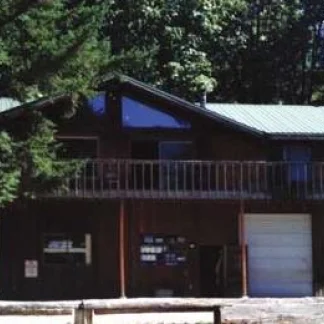Skyland Ranch
Gold Bar, Washington, 43100 Reiter Road, 98251
Available Programs
- Adult program
- Program for men
- Young adult program
Insurance and Financial
- Self-pay options
- Financing available
- Monthly : $4,700
- 90 day cost : $12,000
About this Facility
Skyland Ranch is a drug and alcohol rehab facility in Gold Bar, Washington. The program serves adult men exclusively with short and long term stays, through treatment focused on building confidence and self esteem via the 12 steps and experiential therapy. They are a working ranch setting with rustic amenities. Skyland Ranch takes advantage of its natural surroundings (including wooded areas, hills, mountains, and a river) to create a serene and relaxing atmosphere that makes clients more receptive to treatment. Clients can stay in treatment as long as they like.
The inpatient program sees clients living at the ranch for the duration of treatment. The ranch provides an environment free from modern distractions where meaningful learning and introspection can take place. Residents range from 18 to 60 years old.
Staff experienced in treating addiction provide counseling individually and in groups. Much of this takes place in an experiential setting, like during a horse ride or when fishing. These recreational settings allow clients to open up and bond with one another, building healthy and supportive relationships.
Staff assigns a horse to each client during their stay. Over the course of treatment, clients learn to care for and bond with their horses, a practice known as equine therapy. This process helps the rehabilitation process by building confidence and responsibility.
Skyland Ranch uses the 12 step model as part of the treatment. This is the same group support program used by Alcoholics Anonymous and Narcotics Anonymous. These meetings occur every night following other activities.
The 12 step program sees clients progress through a series of phases, starting with admitting they are powerless over their addictions. They must also surrender to a higher power, a self defined concept that need not be religious, and make amends with those they’ve wronged through their addiction (when appropriate). Ultimately, clients commit to helping others in addiction and supporting those making their way through the 12 steps.
Contact us for more information: (360) 793-2611

Contact Skyland Ranch
Connect with Skyland Ranch by calling their admissions team directly.
(360) 793-2611 Website Get Directions